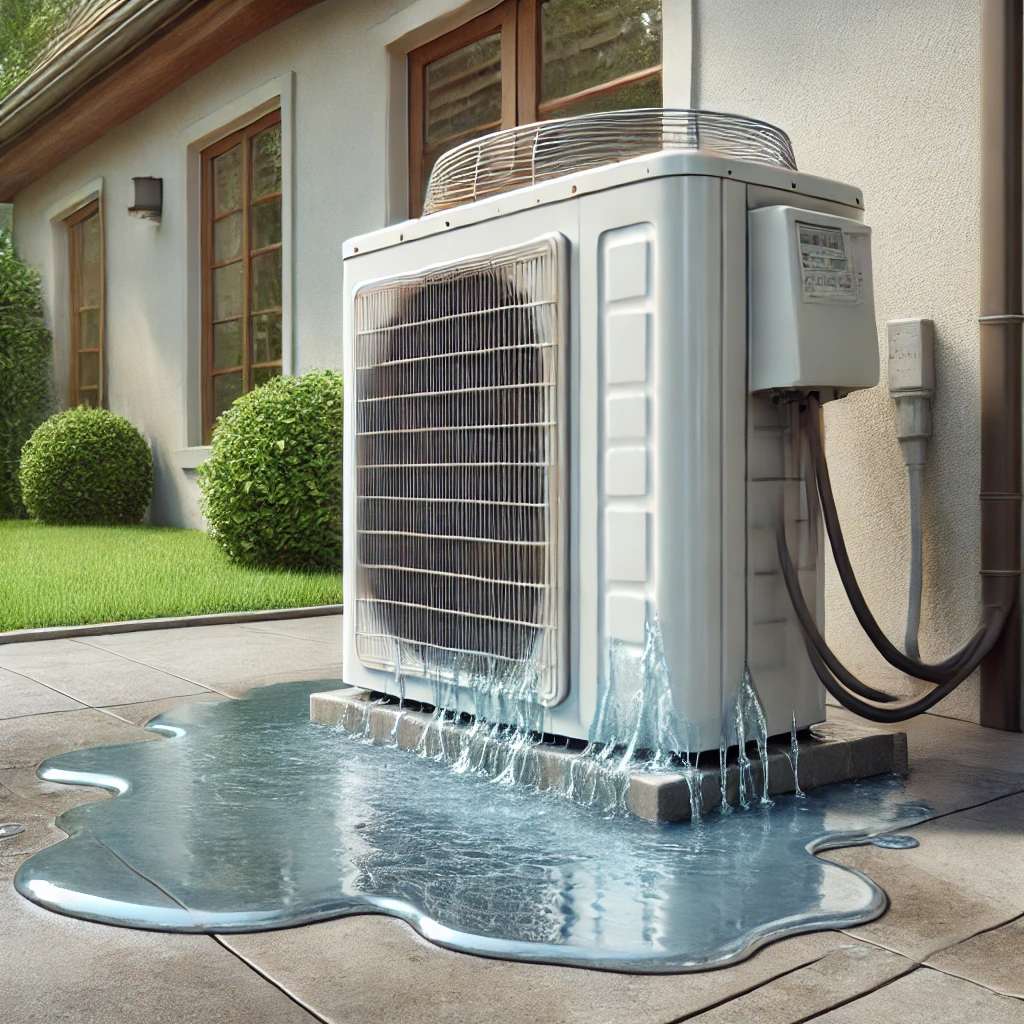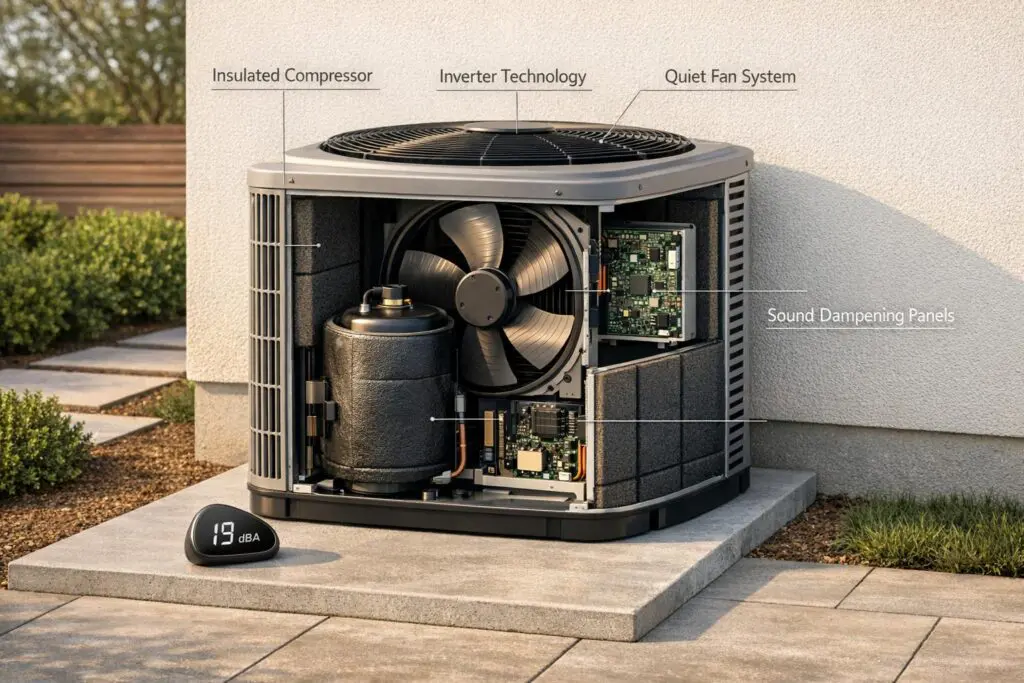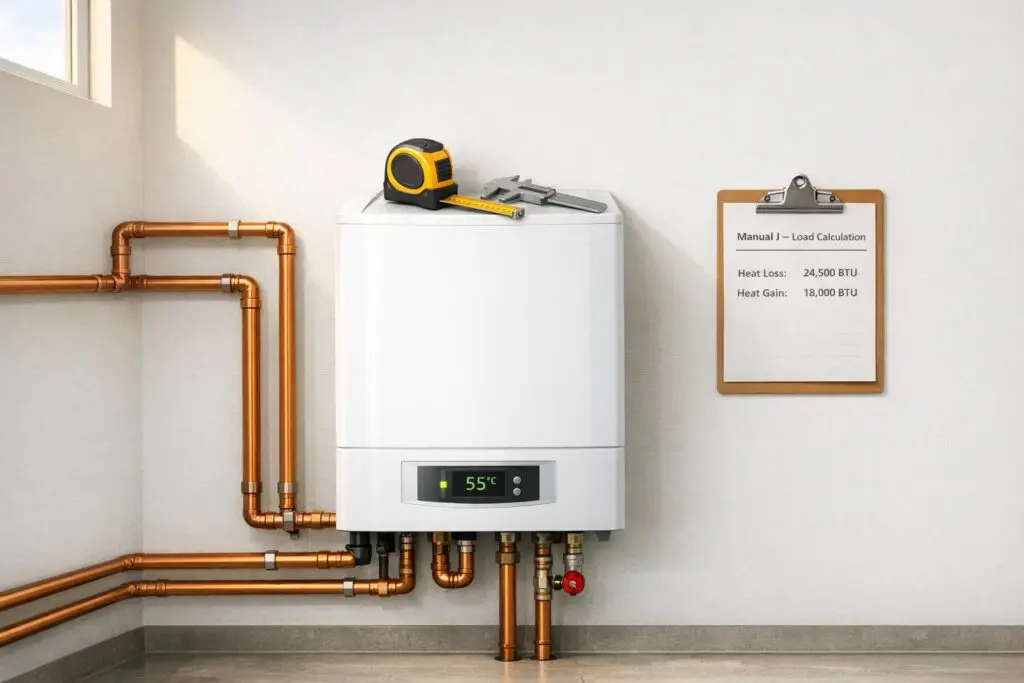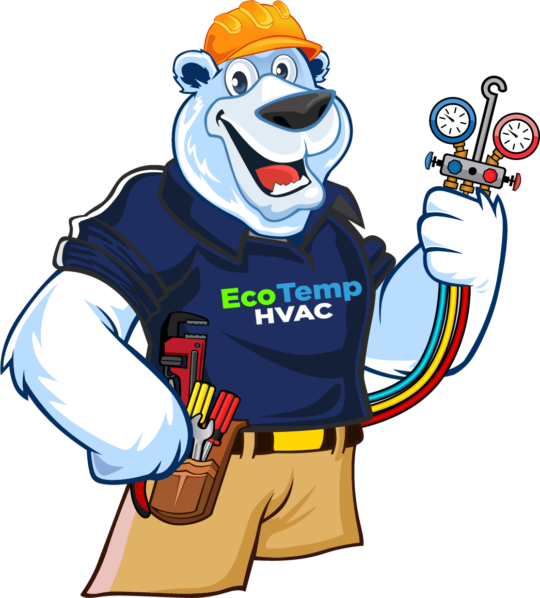Why Is Your Air Conditioner Leaking Water? Causes, Solutions, and Prevention
When your air conditioner starts leaking water, it’s more than just a nuisance – it can quickly lead to significant property damage and costly repairs. From ruined furnishings to potential structural damage, water leaks should never be ignored. Understanding why your A/C is leaking and addressing the issue promptly is essential for protecting your home and maintaining your cooling system’s efficiency.
In this guide, we’ll explore the common reasons for A/C water leaks, what you can do about them, and how to prevent them in the future.
Why Acting Quickly Matters
The moment you notice water pooling around your air conditioner, take immediate steps to minimize damage:
- Turn off your air conditioner to prevent further leaking.
- Clean up any visible water to protect your floors, walls, and furnishings from water damage.
While A/C leaks can feel overwhelming, they’re often straightforward to fix with the help of a professional HVAC technician. The sooner you address the issue, the better your chances of avoiding expensive repairs.
4 Common Causes of Air Conditioner Water Leaks
1. A Dusty Evaporator Coil
The evaporator coil is a critical component of your air conditioning system. It cools the refrigerant, drawing heat from your indoor air and releasing it outside. When your A/C system isn’t properly maintained, dirt and dust can accumulate on the evaporator coil, reducing its efficiency.
If the coil becomes too cold, it can freeze over. As the ice melts, it may overwhelm the condensation pan, leading to water leaks. Regular maintenance, including cleaning the evaporator coil, is key to preventing this issue.
2. A Clogged Drain Line
Your air conditioner doesn’t just cool the air – it also acts as a dehumidifier, removing excess moisture from your indoor environment. This moisture is typically routed out of your home via the condensate drain line.
Over time, dirt, mold, and debris can clog the drain line, causing water to back up and spill over the edge of the condensation pan. A blocked drain line is one of the most common causes of water leaks and is easily fixed by an HVAC technician. They’ll clear the blockage and ensure the line is draining properly.
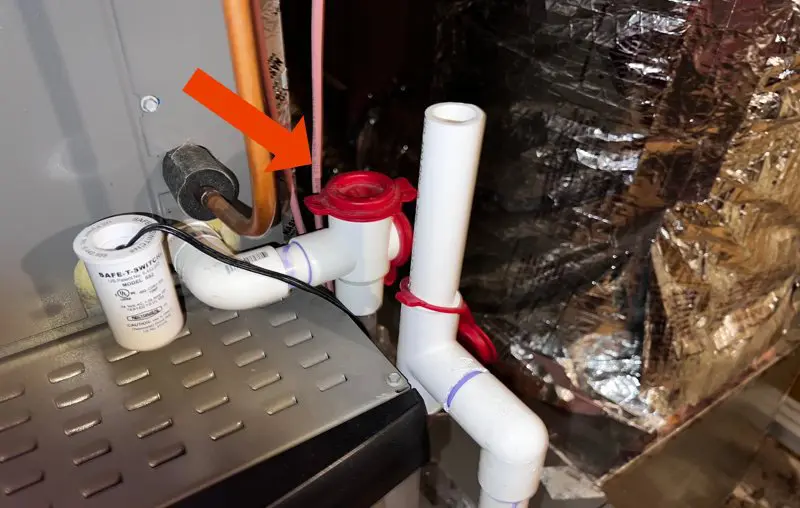
3. A Rusty or Damaged Drain Pan
The drain pan is responsible for collecting water that drips from the evaporator coil and directing it outside. However, in older A/C units (typically 10 years or more), the pan can rust or crack, resulting in leaks.
If your unit is aging and you notice water leaking near the base, it may be time to replace the drain pan. During your annual maintenance visit, your technician can inspect this component and recommend repairs or replacements if necessary.
4. Refrigerant Leaks
Refrigerant is the lifeblood of your air conditioning system. Unlike fuel in a car, refrigerant is not consumed during use, so it shouldn’t run low under normal conditions. However, leaks can occur due to system malfunctions or damage, often accompanied by hissing or bubbling sounds.
When refrigerant levels drop, the evaporator coil may become too cold and freeze. As the ice melts, it can cause water to overflow from the drain pan. Refrigerant leaks require immediate professional attention, as they not only affect your system’s efficiency but can also pose safety risks.
What Should You Do If Your A/C Is Leaking?
If you notice your air conditioner leaking water, here’s how to handle it:
- Turn off your system immediately to prevent further damage.
- Clean up any visible water to protect your home from water damage.
- Call a licensed HVAC technician to diagnose and repair the issue.
At Eco Temp HVAC, our team of certified professionals is equipped to handle all types of A/C repairs. From clearing drain lines to addressing refrigerant issues, we’ll restore your system’s performance quickly and efficiently.
How to Prevent A/C Leaks in the Future
Proactive maintenance is the best way to keep your air conditioner in top shape and prevent water leaks. Here’s what you can do:
- Schedule annual maintenance: Regular check-ups allow technicians to clean components, inspect for damage, and ensure your system is operating efficiently.
- Replace air filters regularly: Dirty air filters can restrict airflow, causing the evaporator coil to freeze and potentially leak water.
- Inspect the drain line: Periodically check for clogs and clean the line to ensure proper drainage.
- Monitor refrigerant levels: Low refrigerant can lead to ice formation on the evaporator coil, so have your system inspected if you suspect a leak.
- Upgrade aging systems: If your A/C unit is more than 10 years old, consider replacing it with a modern, energy-efficient model to avoid recurring issues.
Why Choose Eco Temp HVAC for Your A/C Repairs?
Eco Temp HVAC is a trusted name in Chicago and surrounding areas for reliable and professional HVAC services. Our NATE-certified technicians specialize in diagnosing and repairing A/C issues, including water leaks. With over a decade of experience, we’re committed to keeping your home comfortable and your HVAC system running smoothly.
Don’t Ignore A/C Leaks – Call Eco Temp HVAC Today!
Water leaks can cause significant damage if left unaddressed. If your air conditioner is leaking water, don’t wait – contact Eco Temp HVAC today at (224) 253-8131 or schedule an appointment online. We’ll ensure your A/C system is repaired promptly, so you can enjoy a cool, comfortable home all summer long.


